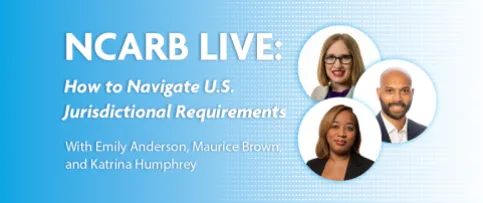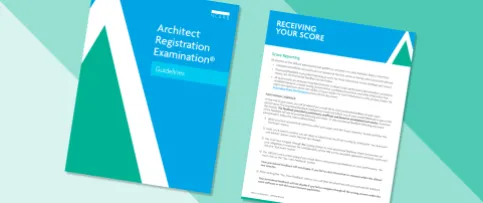NCARB and our 55 licensing boards are committed to ensuring ethical behavior within the architecture profession in order to protect the public interest. Accordingly, we take allegations of misconduct among registered architects and licensure candidates seriously. We also firmly believe in the essential role of due process—which is why there’s a clear distinction between NCARB’s authority to discipline Record holders and a licensing board’s authority to reprimand registered architects.
Upholding Ethical Practice Among Licensure Candidates and NCARB Certificate Holders
Ensuring ethical practice among licensure candidates and NCARB-certified architects is an essential part of NCARB’s mission—to act in the public’s interest. Our programs for licensure and reciprocity play a crucial role in every licensing board’s decision to grant a person the privilege to practice independently while entrusting that person with the public’s health, safety, and welfare.
The Architect Registration Examination® (ARE®), for example, affirms that candidates have the required knowledge and skills to competently practice architecture. To ensure the validity of exam results, NCARB takes several steps to protect the security of the ARE—including administering the exam at Prometric test centers and requiring that all candidates abide by the ARE Candidate Agreement.
We recently announced that NCARB issued sanctions against eight individuals who violated the ARE Candidate Agreement. Following a substantial investigation by NCARB staff members, each candidate was provided due process allowing them to respond to all claims brought against them. Each case was reviewed by NCARB’s Professional Conduct Committee and final disciplinary decisions were made by our Board of Directors. The candidate misconduct was also reported to the appropriate licensing board, and additional sanctions may be taken at the board’s discretion.
The public disclosure of significant misconduct is based on recommendations from NCARB’s Ethics Task Force, the NCARB Professional Conduct Committee, and best practices in protecting the public’s interest to be fully informed regarding professional service offerings. Recently, NCARB further aligned our disciplinary practices with the majority of architecture boards, which publicly share cases of disciplinary misconduct. Going forward, all types of misconduct in which the NCARB Board of Directors has acted may be subject to public disclosure.
Licensing Boards’ Authority to Discipline Registered Architects
To help each of the licensing boards uphold ethical standards within their individual jurisdictions, NCARB recently updated our Model Rules of Conduct. The document—which can be adopted by licensing boards—intentionally references workplace harassment as an issue of focus for disciplinary consideration, along with the obligation to say something if you know something. While it’s up to each licensing board to implement the Model Rules of Conduct, NCARB asks all Certificate holders to acknowledge that they’ve read the ethical guidelines.
Unlike NCARB, licensing boards have the authority to investigate allegations of professional and ethical misconduct for all their licensees and licensure candidates. If you know of anyone who is in violation of your jurisdiction’s rules of conduct, we encourage you to contact your licensing board.
We will continue to monitor any disciplinary actions taken at the licensing board level and evaluate whether further action is appropriate by NCARB. By working together, we are hopeful that NCARB’s community can encourage an atmosphere of protection and respect within the architecture profession while best protecting the public we serve.



